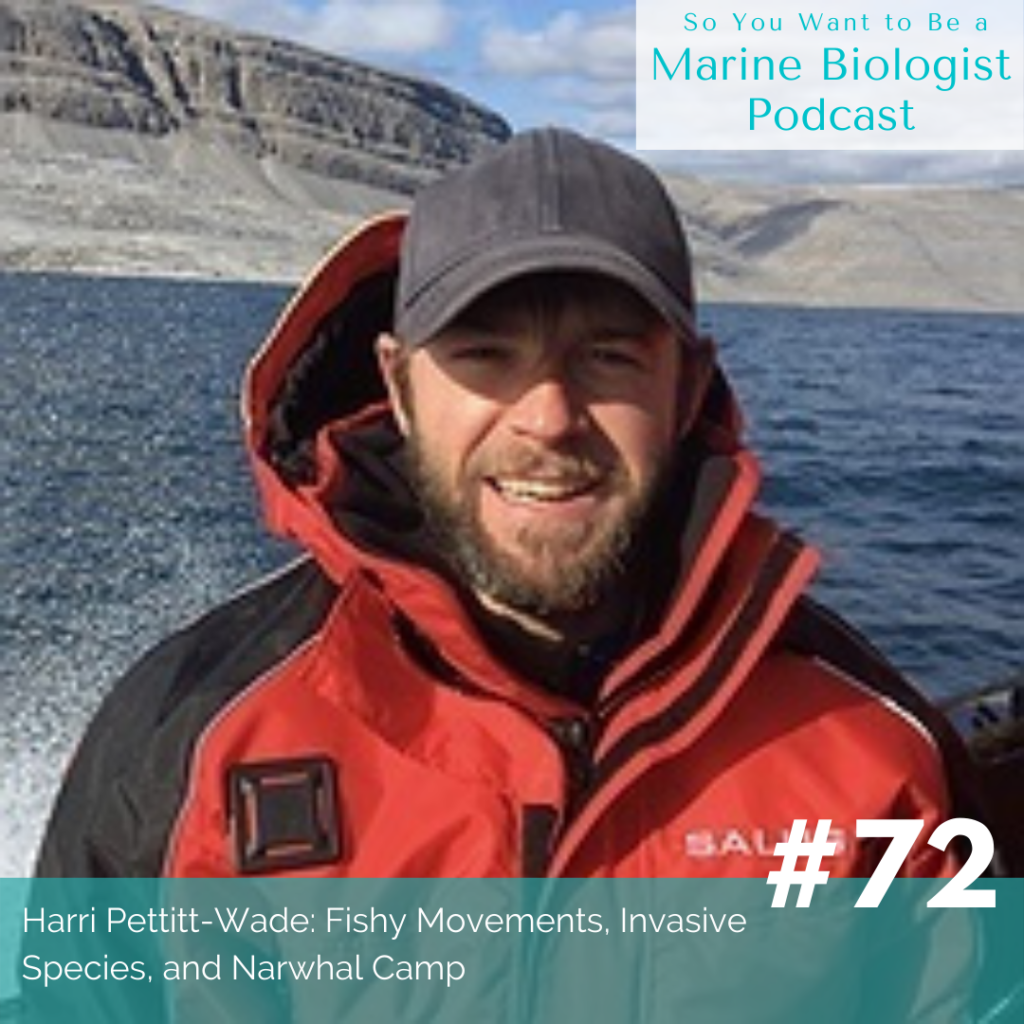Harri Pettitt-Wade is an aquatic animal biologist and ecologist which is a broad way to describe his work monitoring fish patterns and their implications with our changing climate, and spending time at camp tagging whales. We have a fun conversation today covering topics ranging from tropical sharks to arctic fish and even narwhals. Harri has some great insights into what sustainable fishing really looks like and has an incredible field story and answer to the blank check question, so be sure to stay tuned for those. Please enjoy!
Connect with Harri: Hussey Lab| Instagram| Twitter
Quick Links
Baleen whales
Fiddler crabs
Feeding rate of barnacles
Charismatic as a biology term
University of Plymouth
Lemon sharks
Operation Wallacea
Band goby
Zebra mussels
Sculpins
Arctic char
Trophic levels
Food web
Ecological niche
Nigel Hussey
Narwhal Camp
Acoustic tagging
Invert a shark
Tonic immobility
Ocean Foundation
Biodiversity
Fyke net
David Attenborough’s “A Life on Our Planet”
Show Notes
1:06 – Harri has done research with baleen whales. Kara asks, “why baleen over toothed?” The answer has to do with size.
4:48 – During his Master’s, Harri’s research project was about the nutritional requirements of lemon sharks, and that’s what convinced him that he did want to pursue a PhD.
5:42 – Harri shares the specifics of his research project on lemon sharks in the Bahamas.
9:08 – Unfortunately, Harri still hasn’t been to the Bahamas – he didn’t get to experience it firsthand while studying lemon sharks in grad school. “You don’t always get to go to your field location.”
12:21 – For his PhD, Harri ended up in Canada researching invasive species. As Harri says, “Invasive species are like an unplanned evolution experiment.”
14:41 – Gobies are invasive species that out-compete the native sculpins.
17:24 – Harri explains how some gobies were more successful than others at thriving in new waters – it has to do with diet.
20:51 – After Harri completed his PhD, he stayed in Canada because he had the opportunity to work in Nigel Hussey’s lab. Husse’s lab does a lot of work on fish ecology – from small, farmed fish up to apex predators – all around the world.
21:48 – Harri immediately started working on a field project for Hussey’s lab in the High Arctic, at a place called Tremblay Camp, aka Narwhal Camp.
24:40 – Kara and Harri talk about acoustic tagging sharks.
27:43 – A lot of Harri’s current research revolves around Arctic char and sculpin, specifically how fish are responding to the rapid changes in the Arctic caused by climate change.
29:50 – Tribal elders’ definitions of sustainability is different than the United States’.
38:19 What does the ocean mean to Harri? “I think it means home to me.”
38:56 – With a blank check and no political roadblocks, Harri would establish a large, connected network of monitoring devices to track fish movements within the Arctic. These would be long-term systems to help us understand the impact of climate change over ten, twenty years.
41:43 – So far, one of Harri’s favorite field stories was when he interacted with a narwhal for the first time.
46:24 – Harri first suggests that listeners watch David Attenborough’s “A Life on Our Planet.” In this documentary, Attenborough talks about connections with different indigenous groups, which leads into his second ask: Think about how the indigienous groups in your area or your country interact with nature.
